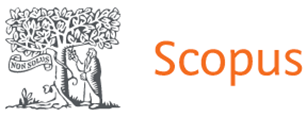Semantic Potential of Representatives of Doubt in Expressing Irreal States
DOI:
https://doi.org/10.15330/jpnu.9.2.71-78Keywords:
category of irreality/reality, modality, evidentiality, irrealisAbstract
The research examines ways of expressing doubt as one of the communicative acts in correlation with the opposition of reality and irreality in the Ukrainian language. Nowadays the research of doubt and its representatives takes a peripheral place in works on modality, most often being observed in comparative works, regardless of the fact that the integral means of its representation are at the same time indicators of irreality at the lexical, syntactic and pragmatic levels. This is primarily explained by the semantic diffuseness and synsematicity of the expression of doubt in the Ukrainian language, which affects the difficulty of typologizing its representatives in the structure of the semantic category of irreality. Doubt as a syncretic emotional and evidential modus component, on the one hand, is an intellectual search impulse, that leads to the subject's verification of a certain extralinguistic situation depending on its correspondence to the real or irreal, which allows it to be considered in the plane of evidential semantics; on the other hand, the extensive ways of representing doubt and their aspectual characteristics point out its potential in expressing other irreal meanings in specific cases.











